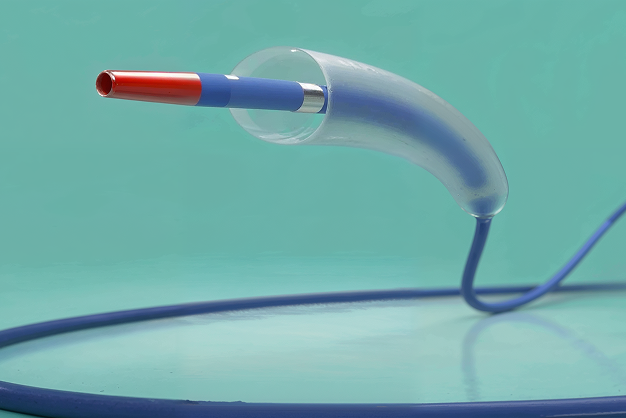Author: Dr. Thomas George
Coronary artery disease continues to be one of the leading causes of illness and mortality worldwide. Modern cardiology has evolved rapidly, and today, some of the most advanced treatment options are available at top healthcare centers like the Best Cardiology Hospital in Kottayam, trusted by patients seeking safe and effective cardiac care.
Among the most promising innovations in heart treatment is the Drug-Coated Balloon (DCB)—a technology that has reshaped the way we approach blocked coronary arteries.
A Breakthrough Concept: The Birth of Drug-Coated Balloons
In 2006, Bruno Scheller introduced the groundbreaking idea of using Drug-Coated Balloons for treating coronary artery blockages and stent-related complications such as restenosis.This technique aligns with the modern “leave nothing behind” ideology, also known as metal-free angioplasty.
The logic is simple: leaving metallic stents in blood vessels can sometimes lead to problems like restenosis, stent thrombosis, and even sudden cardiac death. The DCB approach avoids these issues by eliminating the need for a permanent implant.
How Drug-Coated Balloons Work ?
DCBs are designed to deliver a potent anti-proliferative drug directly to the artery wall during balloon inflation. This process:
- Distributes the medication quickly
- Ensures uniform absorption
- Prevents the abnormal tissue growth that leads to restenosis
It's a one-time, targeted drug delivery approach that offers long-term benefits without leaving behind a metal device.
PCI and Stents: The Traditional Standard
Percutaneous Coronary Intervention (PCI) with stent placement has long been considered revolutionary in cardiology.
It allows fast and effective restoration of blood flow (revascularization)and remains one of the most commonly performed cardiac procedures.
However, permanent stents come with their own set of drawbacks:
- Increased risk of late stent thrombosis
- Requirement for prolonged Dual Antiplatelet Therapy (DAPT)
- Reduced natural vessel elasticity
- Challenges during future interventions and cardiac imaging
- Restricted access to side branches
This is where Drug-Coated Balloons offer a clear advantage.
Why Drug-Coated Balloons Are Different
Unlike stents made from stainless steel or cobalt-chromium, Drug-Coated Balloons do not remain inside the artery.
Stents release medication slowly over several months, whereas DCBs deliver a single burst of drug instantly during the inflation process.
This "burst release" ensures high drug concentration at the target site and eliminates complications associated with long-term implants.
What Drugs Are Used in DCBs?
Two major drugs are used in the coating of Drug-Coated Balloons:
- Paclitaxel
- Sirolimus
These medications:
- Prevent smooth muscle cell growth
- Reduce inflammation
- Promote long-term vessel patency
Paclitaxel is particularly effective as it remains in the tissue for an extended period, ensuring consistent protection against restenosis even after the balloon is removed.
Evidence From Preclinical Studies
Studies on Paclitaxel-Coated Balloons demonstrate:
- A significant decrease in smooth muscle cell proliferation
- Improved muscle-to-artery tissue ratio
- Enhanced healing response due to accurate, targeted drug delivery
These results confirm that DCBs are a reliable and effective choice for selected coronary lesions.
A New Era in Cardiac Care
As cardiology continues to evolve, Drug-Coated Balloons represent a shift toward safer, smarter, and more efficient treatment strategies.
Hospitals recognized as the Best Cardiac Hospitals in Kottayam and home to the Best Cardiologist in Kottayam are increasingly adopting this technology to improve patient outcomes.
For patients seeking advanced, minimally invasive treatment options without long-term implants, Drug-Coated Balloons are becoming a preferred solution.
If you wish to know whether this treatment is suitable for you or a loved one, consult with a cardiology expert at a leading Critical Care Hospital in Kottayam for personalized guidance.
.pdf%20300X60%20PX-02-02.svg)



